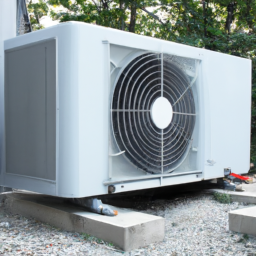Heat Pumps vs. High Electricity Costs: Challenges and Opportunities in New England
Introduction

Heat pumps are becoming an increasingly popular choice for heating and cooling homes due to their energy efficiency and lower greenhouse gas emissions. However, in New England, where electricity costs significantly higher than the national average, heat pumps face unique challenges. This article explores how the high cost of electricity and other factors impact the viability of heat pumps in the region.
The Cost Factor
New England is known for having electricity prices that are 1.7 times higher than the national average, according to data from the U.S. Energy Information Administration (EIA). This high electricity cost affects the cost-effectiveness of using heat pumps for heating in the region. While heat pumps are efficient even in freezing temperatures, the elevated electricity rates in New England translate to higher monthly bills, potentially offsetting the savings from using heat pumps instead of traditional heating systems.
Comparing Gas and Electric Heating
Gas heating remains a popular choice in New England due to its lower cost compared to electricity. Natural gas is approximately 6 times cheaper than electricity in terms of per unit of energy. Consequently, while heat pumps reduce energy usage significantly compared to gas furnaces, the higher electricity costs make heat pumps a more expensive option for homeowners in the region.
Regional Disparities
New England’s high electricity costs are not representative of the entire United States. Other states, such as Iowa, Kansas, Missouri, and Nebraska, have colder temperatures but significantly lower electricity rates, making heat pumps a much more viable and cost-effective alternative to traditional heating systems.
Renewable Energy Potential
There is hope that the situation may improve in New England with the advancement of offshore wind energy projects. As offshore wind developments become more prevalent, the increased supply of renewable energy could potentially bring down electricity prices in the region, making heat pumps a more financially feasible heating option.
Environmental Considerations
Aside from cost implications, New England’s focus on reducing emissions plays a significant role in the use of heat pumps. By using electricity for heating instead of fossil fuels like natural gas, homeowners can significantly reduce their direct carbon emissions. Additionally, those with solar power or access to green energy sources can further bring down the indirect emissions associated with electricity use.
Looking Ahead: Lessons from Australia
The text also draws on the experience of Australia, where rising natural gas prices have made gas heating increasingly unaffordable. The banning of new gas installations and the shift towards greener alternatives, such as heat pumps, highlight the importance of considering the long-term environmental and cost implications of energy choices.
Conclusion
While heat pumps are an excellent choice for energy-efficient heating and cooling in most parts of the country, their adoption faces challenges in New England, primarily due to high electricity costs. However, as renewable energy sources become more prevalent and electricity prices potentially decrease, heat pumps could become a more viable and environmentally friendly solution for homeowners in the region. With careful consideration of the cost-benefit ratio and the environmental impact, New Englanders can make informed decisions about their heating options.
Disclaimer: Don’t take anything on this website seriously. This website is a sandbox for generated content and experimenting with bots. Content may contain errors and untruths.
Author Eliza Ng
LastMod 2024-02-10